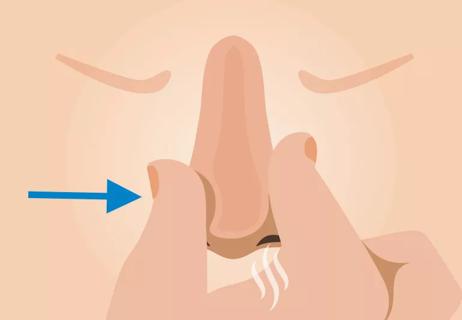One theory is brain temperature regulation, and yes, a ‘contagious yawn’ is a real thing

Do you ever find yourself yawning when you see someone else yawn?
Advertisement
Cleveland Clinic is a non-profit academic medical center. Advertising on our site helps support our mission. We do not endorse non-Cleveland Clinic products or services. Policy
There are some interesting myths about this strange, wide-mouthed thing we do. Centuries ago, people believed that you should cover your mouth during a yawn to prevent your soul from leaving the body.
“We all find ourselves yawning when we feel sleepy or bored, or sometimes, for no apparent reason at all,” says family medicine physician Donald Ford, MD.
But for as much as we know about the body and how it works, laypeople and scientists alike still ponder the exact reasons why we yawn. We don’t have a definitive answer, but there are some solid theories behind why we yawn. Let’s review the main ones.
It’s no coincidence that you frequently yawn when you feel your eyelids droop and you start daydreaming about your warm bed. In fact, a yawn might be your brain attempting to jolt you awake when you’re sleepy.
Researchers have theorized that as yawning forces your face and neck to move, this causes stimulation of your carotid artery. In turn, this causes your heart rate to increase and even to move your brain into more of an “active state.”
In other words, think of it as your body’s way of sending a gentle alarm to your head when it notices you’re dozing off.
Have your parents ever told you to try and yawn on purpose to help pop your ears when a plane lands? Well, turns out there may be some science to that tip.
Advertisement
“Yawns are useful in opening our eustachian tubes, which regulate air pressure in the middle ear,” says Dr. Ford.
In fact, that’s why your body often will set off a yawn as a way to relieve pressure. But the same effect also happens when we swallow — so researchers can’t say for sure if this is the main reason that we yawn.
Researchers have also found that yawning helps thermoregulate your brain — meaning helping your brain maintain its core internal temperature.
“They theorized that just as your computer has its own cooling mechanism to keep it from overheating, your body’s computer — the brain — uses yawning to regulate its temperature,” says Dr. Ford.
It does this in a couple of ways. Various studies have found that when we yawn, we inhale a large amount of air into our lungs, which then cools the blood vessels in our head and neck. Additionally, the facial muscles in our jaw and cheeks stretch, adjust and contract, which could help ventilate our sinuses and further cool our brain. You may have also noticed that when you yawn, it can cause you to tear up, which also releases heat.
This theory may play hand in hand with the theory that yawning is a way to make your body more awake or alert. “Sleep cycles, boredom and stress are associated with temperature fluctuations in the brain,” adds Dr. Ford.
OK, now the person next to you in the meeting is giving you a side-eye because you’re on your third yawn in a row. But it’s not your fault if that’s how your body is reacting!
In addition to wondering why you yawn, you may also wonder if it’s a problem if you yawn excessively. What’s the yawning limit? It may surprise you to know that the average person yawns about 20 times a day — so, you’d have to yawn a lot more than that before you should be concerned.
And while there isn’t an exact number to what constitutes yawning too much, the main red flag you’ll want to take note of is if you’re yawning way more than is normal for you — especially if it’s not triggered by being tired or bored.
In some cases, excessive yawning can be a sign of a neurological issue, including:
If you find that you’re yawning more than you normally do, it’s best to consult a healthcare provider.
Did you ever notice that after you see someone yawn, you feel the need to yawn yourself?
This is what we call a “contagious yawn” — and yes, it’s a thing. But there’s still a lot of mystery around the phenomenon. Someone’s initial yawn is considered a spontaneous yawn. When you yawn in response, this is considered a contagious yawn.
Advertisement
Research from 2011 found that both spontaneous and contagious yawns arise out of an underlying mechanism involved in regulating your brain’s temperature. So, many researchers theorize that contagious yawning is simply this: If you yawn after seeing someone else yawn, it’s likely because you’re both in the same area with a similar temperature. In turn, both of your brains are responding to a temperature adjustment.
But is it possible that simply hearing or seeing someone yawn can send a trigger to your brain to yawn as well?
A recent 2022 study aimed to find out if there’s a clear link between social closeness and yawning. While the research confirmed that people did yawn if they saw others yawning, this wasn’t really because of an empathetic or emotional response. Instead, it may be a part of synchronized group behavior — as yawning helps alert or “wake up” the body, our bodies may respond to others yawning as a way to protect ourselves.
If your constant yawning is starting to annoy you (or others around you), you can do a couple of things to check in with your body.
If you want to stop yawning, you can try:
Advertisement
Yawning is a common phenomenon that many of us experience. You may notice it happens when you’re tired or bored, but it could also be a response to stress, pressure or your brain maintaining its internal temperature.
But if you’re noticing that you’re yawning more than usual and with no clear cause, you should consider talking to a healthcare provider to see if there’s an underlying issue. And if your yawns are telling you that you’re not getting enough ZZZs, be sure to talk to your provider about any possible sleep deprivation symptoms you may be having to help you get a better night’s rest.
Advertisement
Learn more about our editorial process.
Advertisement

Changing how you breathe, gargling water and distracting yourself are all common ways to stop your diaphragm from spasming

Simple at-home solutions, like doing pursed lip breathing and drinking a warm beverage, can often bring immediate relief

Mouth taping may seem promising, but it can actually cause more harm than good, especially if you snore or have sleep apnea

When something like food or drink goes down your windpipe rather than your esophagus, it can cause coughing and sometimes choking

Getting vaccinated in October can help protect you against severe illness between November and March

Breathing through your nose is far better for you, but depending on your anatomy, that may not always be possible

Dry drowning is an airway closure from choking on water without getting fluid in your lungs

This style of breathwork can invigorate you and help you focus

Wearing a scarf, adjusting your outdoor activities and following your asthma treatment plan can help limit breathing problems

Your diet in the weeks, days and hours ahead of your race can power you to the finish line

When someone guilt trips you, they’re using emotionally manipulative behavior to try to get you to act a certain way